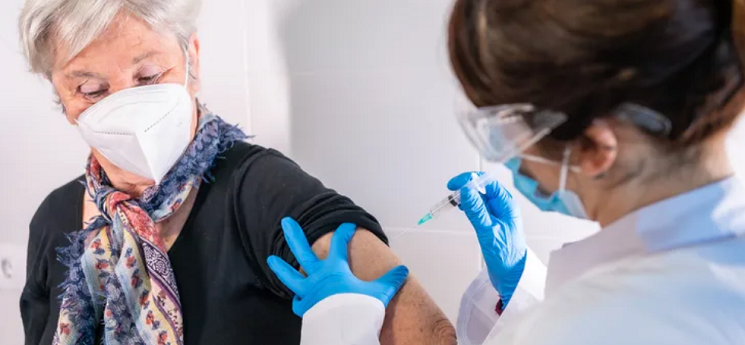The federal government says it will have enough COVID-19 vaccine doses to fully vaccinate every adult by October.
Currently, only 4.6 per cent of the population is fully vaccinated and health chiefs have warned that one dose of either the Pfizer or AstraZeneca vaccines delivers relatively little protection against the highly transmissible Delta variant.
Public Health officials in England, where almost half of the population is fully vaccinated, estimate that the Pfizer vaccine offers only about 36 per cent protection against the Delta variant after one dose, and AstraZeneca offers just 30 per cent protection after one dose. Protection rises to 88 per cent for Pfizer and 67 per cent for AstraZeneca after two doses.
The UK officials say there is evidence the Delta variant causes more severe disease in unvaccinated people and is more likely to infect children.
Scientists at King’s College in London say that individuals with the Delta variant display a slightly different set of symptoms to those infected with the original strain. These included “cold-like symptoms” such as a headache and a runny nose. They say that some people simply believe they have a cold.
Read more: Can you test negative but still transmit COVID to others
The US Centers for Disease Control and Prevention expect the Delta variant to become the predominant strain in the US in coming months.
In India, where the Delta variant emerged last October, health authorities say a new mutation called ‘Delta plus’ has been recorded in three states and that it is even more transmissible.
Meanwhile, the Delta variant – estimated to be about 50 per cent more infectious than the original Wuhan strain – continues to spread in NSW.
For the first time on Wednesday, the Australian government released long-range data on when it expects vaccines to arrive and the forecasts will be updated regularly, says COVID-19 taskforce commander Lieutenant General John Frewen.
Read more: Could green tea help to combat COVID?
The government expects 30 million to 37 million vaccine doses to arrive between July and September, The New Daily reports.
In September, supply is expected to dip significantly – to between just 1.9 million and 2.6 million per week – as the first small shipments of Moderna arrive and AstraZeneca allocations are slashed by more than half.
The government plans to phase out AstraZeneca from about September, anticipating that all people over 60 will have had their second shots by then. AstraZeneca is now not being given to anyone under 59 because of rare blood clots.
The government has not given any firm deadline on when it hopes all Australians would be fully vaccinated.
Read more: COVID problem experts say must be accepted – and corrected
Meanwhile, health experts are emphasising the dangers of airborne transmission.
Professor Raina Macintyre, head of the biosecurity research program at the University of New South Wales’s Kirby Institute, told The Guardian that airborne transmission in indoor settings could occur even in the absence of fleeting contact.
“Respiratory aerosols accumulate in the same way that cigarette smoke accumulates,” she said.
“In an indoor space where the ventilation isn’t adequate, somebody with the infection could have come and gone, but the virus is still lingering in the air. So if you walk through that area and you breathe that air, you could get infected.”
Prof. Macintyre and Professor Nancy Baxter, head of the University of Melbourne’s school of population and global health, say more focus should be placed on airborne transmission, particularly during winter.
“People are still kind of stuck in that mindset of hand sanitiser and washing your hands, when actually the message we need to be getting out there is it’s the air you breathe,” Prof. Macintyre said.
“Ventilation makes a difference. If you’re having people over, open the window. If you’re driving in a car with people, open the window, even a little bit. Wear masks. It’s the shared air that matters the most.”
Do you ensure air flow when in an enclosed area? Are you still waiting for your second vaccine dose? Share your experiences in the comments section below.
If you enjoy our content, don’t keep it to yourself. Share our free eNews with your friends and encourage them to sign up.

